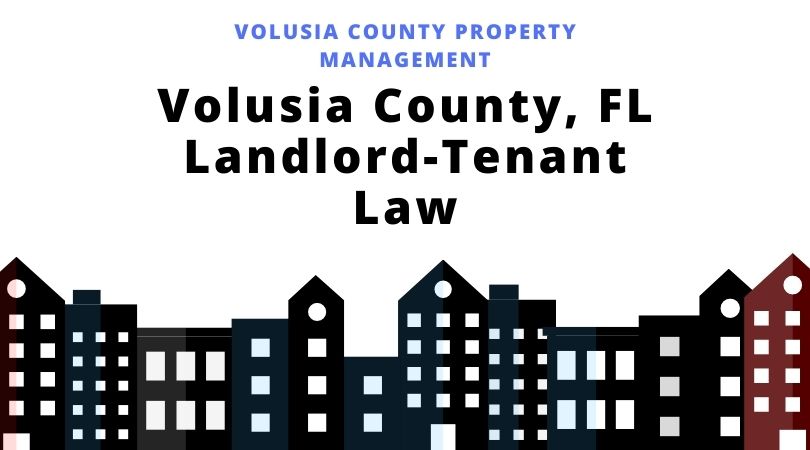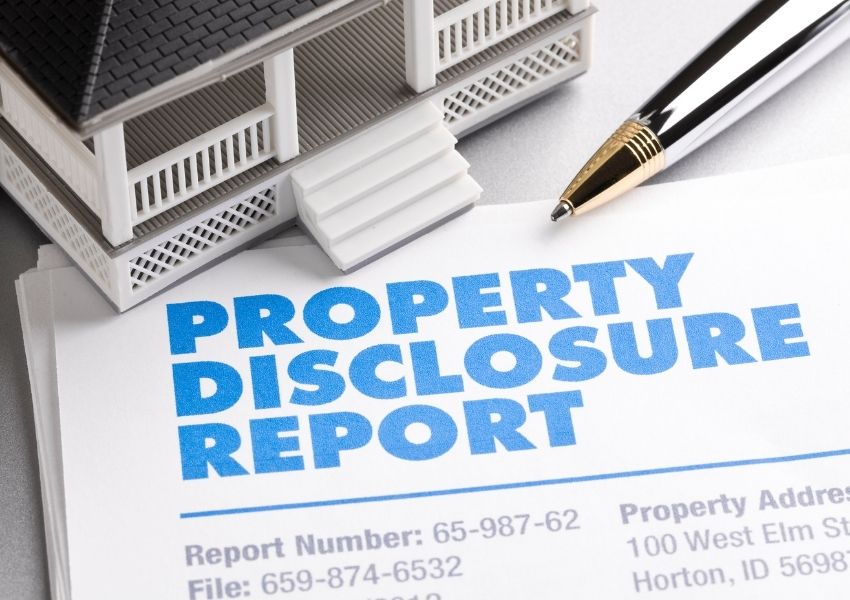
In Florida, a landlord-tenant relationship is established in three ways: if an agreement is reached orally when there is a written lease, or once the landlord accepts a rent payment.
Once the relationship is established in any of those three ways, both parties will obtain certain rights and responsibilities. As a Volusia County landlord, it is crucial you know what is expected of you by your tenant to ensure the tenancy runs as smoothly as possible.
We at Volusia County Property Management have put together this article to help Florida landlords understand their rights and responsibilities.
Landlord Rights & Responsibilities in the state of Florida
The following are some rights you have as a landlord:
- Florida landlords have the right to restrict certain actions by a tenant. For example, restrictions on smoking, subletting, and pets.
- A Florida landlord may require the tenant to pay a security deposit prior to moving in. Landlords can also charge a non-refundable pet deposit, as well.
- To amend the terms of the lease agreement. If making the changes midway through the lease, you must seek your tenant’s approval first.
- Terminate a lease for specific violations, such as if a tenant withholds rent or excessive property damage.
- To put down late fees on overdue rent.
- The ability to enter the rented properties to fulfill important responsibilities.
Along with rights, landlords do have responsibilities as per Florida landlord-tenant law:
- A landlord must follow the state’s eviction procedure when looking to evict a tenant for a valid reason.
- To not negatively impact tenants for exercising any of their rights as per the Florida Landlord-Tenant laws. Such as, forming or joining a tenant’s union, or reporting you for habitability issues.
- To not discriminate against a tenant based on their race, color, religion, national origin, familial status, or any other protected characteristic.
- Providing all the amenities and facilities promised in the lease or rental agreement.
- Providing the tenant with all the required disclosures prior to lease signing.
- Maintain peace and quiet as per the Implied Covenant of Quiet Enjoyment.
- Notify the tenant prior to accessing the property.
- Make the required repairs promptly.
- Comply with all safety, health, and building codes as per the Warranty of Habitability.
- Comply with the Fair Housing Act.

Tenant Rights & Responsibilities in Florida
Like landlords, tenants have both rights and responsibilities as per Florida landlord-tenant laws.
The following are some of the rights tenants have in the state of Florida:
- To continue living in the rented premises until the landlord has followed the proper procedure to evict them.
- To have repairs completed within a reasonable period after requesting the landlord fix them.
- Receive proper notice when a landlord looks to amend the terms of the lease agreement.
- To live in peace and quiet.
- To live in a safe and sanitary home.
As for responsibilities, they are as follows.
- To pay rent on time.
- Abiding by all terms of the agreement.
- To make any repairs that they cause.
- To notify the landlord before vacating the unit at the end of the lease term.
- To notify the landlord when looking to be away for an extended period.
- Keeping noise levels down as per the Implied Covenant of Quiet Enjoyment.
Required Disclosures in Florida
As already mentioned, landlords have a responsibility to make certain disclosures to their tenants:
- Disclosure on lead-based paint. For a home built prior to 1978, you have a responsibility to provide your tenant with information about hazards associated with lead-based paint.
- Disclosure of the property owner’s name and address. You must let your tenant know the identity of the property owner.
- Disclosure on how you are storing their security deposit. This is only applicable to landlords managing rental units with at least five individual units.
- Disclosure of information regarding radon gas. You must let your tenant know of the nature and hazards associated with radon gas. And this should be regardless of whether your rental property is in or near the rental unit.

An Overview of the Florida Landlord-Tenant Laws
Landlord Entry
As a Florida landlord, you are required to provide your tenant with a notice of at least 12 hours notice prior to entering an occupied unit. The following are common reasons a landlord would require entry to the property:
- To make repairs.
- To show the property to prospective tenants or buyers.
- If you have reasons to believe the tenant has abandoned the premises.
- Pursuant to a court order.
- In an emergency.
The entry must be done during business hours. To clarify, between 9 AM and 6 PM during weekdays, and between 10 AM and 3 PM during weekends.
Warranty of Habitability
Landlords in Florida, like their peers elsewhere, have a responsibility to provide a habitable rental property. The following are some characteristics of a habitable rental property as per the Florida landlord-tenant laws:
- Ensuring water supply is up to code.
- Ensuring all facilities such as heating, lighting, and electrical is up to code.
- Providing adequate trash receptacles.
- Ensuring railings, stairways, and floors are in good maintenance and repairs.
- Ensuring the property is safe from intrusion.
- Providing effective weatherproofing.
Housing Discrimination
It is against the law to discriminate against a tenant based on a protected characteristic. In Florida, the protected characteristics are as follows.
- Race
- Color
- Sex
- Religion
- Disability
- National origin
- Familial status
- Pregnancy
Small Claims Court
You can find yourself in conflict with your tenant for a variety of reasons. Including, the return of security deposit and lease violations. When such issues occur and a dispute arises, you can seek help from a small claims court. The value, however, should not exceed $5,000.
Changing of Locks
Currently, there is no statute indicating whether either party on the lease can change a unit’s lock without the permission of the other.
What Florida law, however, does forbid are lockouts that are intended to ‘evict’ a tenant.

Rent Control
Presently, there are no rent control laws in place. This means you can charge whatever amount of rent you wish to. In addition, you can raise the rent by whatever amount and for whatever reason.
Bottom Line
At RentSmartUSA, we believe one of the most important aspects of property management is understanding the laws in the areas in which you operate. This way, you know what you can and cannot do. If you have any further questions about the landlord-tenant laws or anything else regarding proeprty management please let us know.
Disclaimer: This blog is not a substitute for legal advice from a licensed attorney in your state. Laws change frequently, and this post may not be updated at the time you read it. Please contact our team if you have any questions regarding this content or any other aspect of property management.